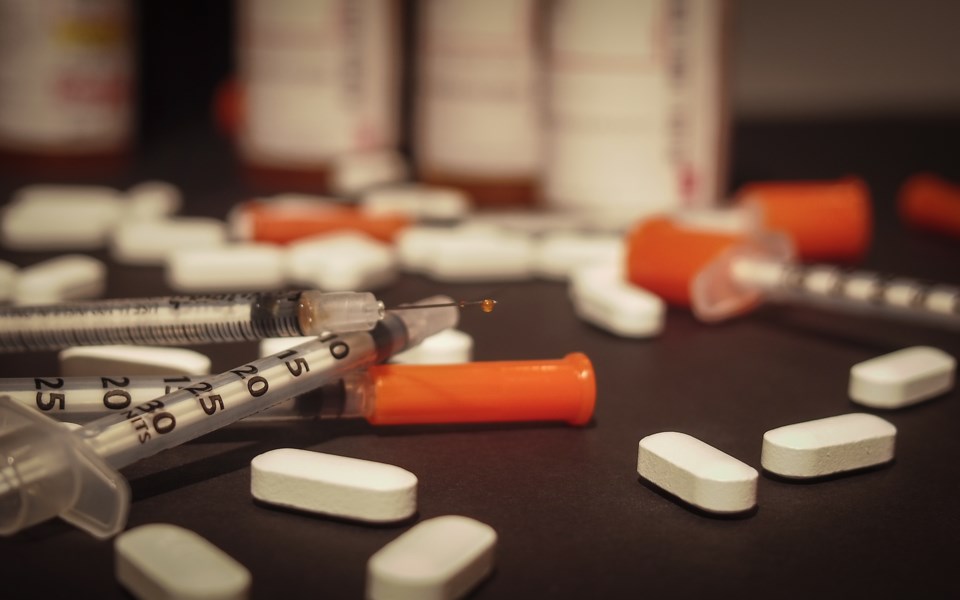Local and regional data continue to reflect the grim reality of B.C.'s public health emergency for toxic drugs, which surpassed the seven-year mark on Friday (April 14).
Today (April 18), the BC Coroners Service revealed that five people in Coquitlam died of illicit drug overdoses in the first three months of 2023.
This is from a total of 37 lives lost between Jan. 1 and March 31 to toxic, unregulated substances in the Fraser North region, which includes Coquitlam, Port Coquitlam, Port Moody, Anmore and Belcarra.
While the city and health service delivery area are on pace for a significantly lower death toll this year compared to 2022, chief coroner Lisa Lapointe said tens of thousands of people are still at risk.
"This is also not a crisis confined to certain neighbourhoods or certain towns," she said in a news release, noting the average remains at six deaths per day in B.C., as it has been for the last two years.
"All areas of our province are immensely affected by this crisis, and collaboration, innovation and the rejection of old stereotypes and failed solutions are necessary to prevent future deaths."
Nearly 600 people died of illicit drugs across the province in the first quarter of 2023, according to the latest stats available, and only one took place at an overdose prevention site.
The BC Coroners Service explained 77 per cent were men and 71 per cent were between age 30 and 59.
In 2022, there were 53 fatalities from toxic unregulated drugs in the Tri-Cities, including 32 in Coquitlam.
That set a new yearly record for the city since the province started taking numbers in 2012.
"It is clear that an urgent response to this crisis is required and overdue," Lapointe said, adding there's no evidence that prescribed safe drug supply is contributing to the illicit deaths.
"Recommendations made by multidisciplinary experts on two Coroners Service Death Review Panels and the Province's Select Standing Committee on Health into the crisis support the urgent implementation of a safe, regulated supply of substances for those at risk of serious harm or death, as well as provincial standards for the provision of evidence-based treatment and recovery services, along with requirements for reporting outcomes. There should not be a dichotomy between access to life-saving safer supply and access to life-saving treatment options."
More than 11,000 people have died from toxic drugs in B.C. since the public health emergency was declared in 2016.
@tricitynews ♬ original sound - TriCityNews





